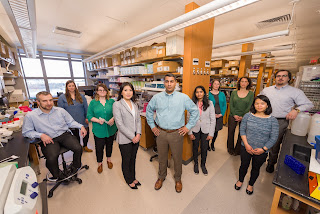What Makes the Dream Work
Work is work. With few exceptions,
we as humans wake up to an alarm clock and go about a morning routine. The
day’s attire, a coffee and breakfast, perhaps the daily news, all the while
keeping an eye on the time so as not to be late for work. Today, that extra whack
of the snooze button has us behind, and our dentist wouldn’t be too proud of our
brushing time. The cocktail of caffeine and stress-driven cortisol presses our
foot a little harder on the gas pedal, and we just barely make it to the
morning meeting. The hours go by—maybe accompanied by a second coffee—and the
day ends. Just as we wind up, we take the moments after 5:00 to declutter our
thoughts of the day. Whether we are returning to a family, a dinner with
friends, or a captivating Netflix series, we continue on knowing the cycle will
repeat itself tomorrow. But the time in between—the time that consumes the
majority of our conscious lives, the time of work—creates the foundation for
our success in life. That success can only be found through two things: what you
are doing, and who you are doing it with.
Although the alarm clock buzz for a
day researching cancer seems captivating enough for self-fulfillment, it isn’t
so simple. Sure, there are gratifying moments when discussing our work with
those whom it impacts most: the inspiration is mutual, and it motivates us each
to continue the fight. Moments of Eureka, though, are few and far between. The
complexity of the disease alone forces a researcher to develop a short-sighted
view restricted to the day’s experiments. Pile on top the work of grant
writing, equipment maintenance, and notebook keeping; we’re back to, well,
working. Alone, it’s only too easy to fall into this trap. Failure to
appreciate the beauty and nobility of performing this research is in itself a
widespread disease, one which can only be cured by a work team dedicated to
success.
We in the Roychowdhury Lab have unearthed the
treasure map to such success. Both as individual researchers and as a
cancer medicine lab, the self-satisfaction of knowing we did our best does not
come without working together. The combination of bioinformaticians,
clinicians, bench researchers, and undergraduate students within the lab has
each person practically speaking a different language given the unique and
diverse backgrounds present. Through patience and team-building exercises
reminiscent of early teenage summer camps, however, our team has come to decipher the language each member speaks and allow us to effectively communicate and work together. In fact, it is through
working together that we established the Ten Principles for a Successful Team listed
below. We use these traits as guidelines not just for an efficient work
environment but for the purpose we wake up for each day. Rather than just
making it on time to a meeting, we are combining our unique skill sets to
develop new diagnostic tests to improve treatments, understand how cancers outsmart
therapies, and search for novel therapeutic strategies for treating cancer.
Rather than simply cleaning beakers alone, we are helping one another knock off
chores to leave more time for researching cancer. Rather than being individual,
drone-like researcher, we are a team. Each day we experience the success of one
day curing cancer.
The Roychowdhury
Ten Principles for a Successful Team
·
Selflessness
·
Positive Attitude
·
Commitment
·
Specialization
·
Accountability and Trust
·
Communication
·
Organization and Alignment
·
Respect (attitude with gratitude)
·
Patience
·
Recognition and Appreciation



Comments
Post a Comment